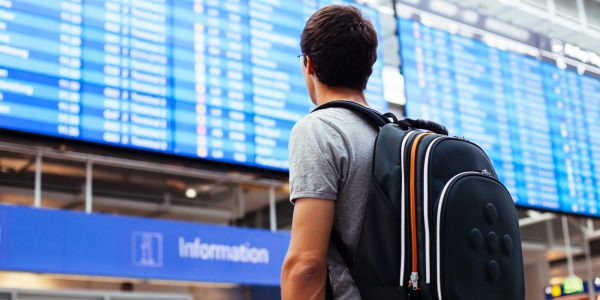Efficiency has always been a goal of most businesses. With lean manufacturing techniques and high-tech workflow solutions for streamlining processes spreading across multiple industries, it's become a prized virtue to many company leaders. As such, it makes sense to bring efficiency to every aspect of the job - and business travel can definitely be included in such efforts.
So how should you make your next trip on the company's dime (and time) a smoother, more efficient and more cost-effective experience? Well, the specifics will depend on the trip's parameters, but there are numerous best practices that can be applied to any business-related travails. We'll take a look at a few of the best such tips today:
Efforts to make companies and their employees more efficient can easily be applied to business travel.
Packing with practicality in mind
Business trips often have fairly strict itineraries, with little to no room for wasted time. Because of this, it stands to reason that packing one's luggage for such a journey should also be streamlined. Business Insider recommended fitting everything into just one suitcase - ideally a small rolling one that can go in the overhead luggage compartment and not need to be checked.
It will also be prudent to do more with less in business travel. Pavia Rosati, founder of travel tips website Fathom Way To Go, told Business Insider, "I think about the stuff I want to bring, and then I only bring half. And you're still not going to wear a good two-thirds of it."
Being technologically prepared
Because many business travelers are going to be completing work assignments before and during their air travel, the ability to do so in an efficient manner depends on an airport's Wi-Fi capabilities, as well as the quality of LTE, 4G or 3G cellular internet. According to Entrepreneur magazine, this varies wildly between air terminals: For example, Denver International Airport's Wi-Fi allows an average download speed of nearly 80 megabits per second, but its cellular web service is an atrocious 20 Mbps.
The majority of airports measured in the Speedtest study that Entrepreneur cited fall somewhere between 50 and 20 Mbps for Wi-Fi and 30 to 10 Mbps for cellular. Try and find out in advance what these figures are for the airport you will visit.
You must also face the possibility of laptops being banned on some commercial flights, as Homeland Security has apparently considered doing. PC Magazine recommended bringing Bluetooth keyboards for your smartphone or tablet, so that you're prepared to handle last-minute presentation touch-ups even without your computer.
Enroll in Global Entry
In recent years, Customs and Border Protection have offered the Global Entry program to travelers who've proved themselves to be low-risk, allowing them expedited passage through airport security. Business travelers can benefit significantly from this initiative, and will be eligible as long as they're U.S. citizens or legal permanent residents, or citizens of select nations. Global Entry members scan their fingerprints and passports at airport kiosks and can then immediately skip security to head to baggage claim and then to your boarding gate.













